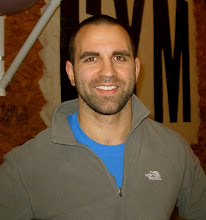Cook for yourself, cook w/ your kids, support the revolution.
www.jclfa.org
These increases in awful health have become acceptable and that may be the worst part. I'm a tall, low body fat% and in shape american (in comparison to the whole), I have no room to speak.
Overweight/obese/diabetic/unhealthy/inactive/etc isn't an affliction. It's going to take courage, discipline and drive that people didn't know they had in order to change everything they know about food and their relationship w/ it.
But it's possible, I've seen it enough times to know that it's repeatable. Until going the journey w/ someone there's no way to understand (I sure didn't).
The Tipping Point may be one of the most important pieces of his speech, and one I really agree w/.
1. Our MONEY is our most powerful VOTE and we are responsible for the food in the store.
We must be more, we must do more, but it comes one step at a time, and right now I'm not taking an active head on fight against the food industry. Try that and we will FAIL, they are too big, too strong, w/ too much money. That fight is pointless.
If you want a change, VOTE with YOUR $$$$. Purchase grass fed beef from a local farmer, fruits and vegetables from farmer's markets (that doesn't come from Chili, yes we get fruit all the way from there, lots of it). Then cook it yourself.
Look what a quick google search came up with:
http://www.eatwild.com/products/iowa.html
It's not hard to find the food.
The food industry is business and looks at a bottom line b/c money drives the world. I'm a capitalist, so I agree w/ this, that's how it works. It's your choice what you buy, and that drives what gets sold. If you buy hoho's every time you stop at the convenience store then you are just as responsible as the food industry (I'd even say more). They wouldn't produce it if you didn't buy it.
The food industry rely's on you, NOT the other way around.
2. Build a positive relationship w/ food.
This is much easier said than done. Some people can get away w/ murder when it comes to nutrition, some people cannot.
- Standing up to eat
- rushing meals
- on the go
- unorganized lifestyles
- emotional eating
- unconscious eating (not asleep)
- lack of appreciation
- "convenient eating" (eating out/ordering in)
- etc.
These are just a few of the common things we do on a regular basis.
Everyone can relate to the moment you just finished a plate and felt sad b/c you hadn't even realized it was the LAST bite. This is a sign of having a very poor relationship w/ food.
We need to take one small step at a time, master it, and move on to another portion of our lifestyle that we can improve.
JUST ONE. JUST ONE. JUST ONE
Do NOT think you are awesome enough to try TWO.
ONE AT A TIME.
Take something that seems easy and small and trivial and use that ONE thing for 2 weeks w/ utmost urgency as if you're going to die if you don't succeed at doing this ONE thing EVERYDAY for that 14days.
It could be as simple as taking a multivitamin Everyday until you have the sucker down. Until you can take a vitamin everyday LIKE A BOSS.
If that's the only change for that month, and we found a way to sustain it and make a lifestyle change. WE WON!!!! Even if it's the only change for that given time. We have won.
Then we move on to another b/c we've mastered that one thing and can sustain it.
But if we try to biting off more then we are setting ourselves up for failure.
ONE THING at a time.
3. Support the revolution
Like I said above, money drives the world. Personally I'm not an advocate for charities, and it's just my opinion that their main goal is to survive b/c they create jobs, and if their cause all the sudden happened, they'd be out of a job. This is just my opinion, take it h/e you'd like.
Growing your own plants in your backyard is a way to support this revolution.
So is sitting down around the table as a family.
You say there's no time and it'd never happen. My mom and dad found a way. Even when Molly was 17, Joe would've been 15, I would've been 11, and Maggie would've been 4 and everyone of us were in sports (except mag b/c she wasn't even in school). Idk how they did it, but almost every meal was cooked by one of us (yes we all knew how to do this at a very young age) and we ate as a family almost everyday. We also all ate breakfast....EVERYDAY.
Giving money works, actively participating works, just showing up is a support that seems pointless but has a huge affect.
Building numbers (active participants/money/whatever) for a cause is how it gains power.
This is a good thing to stand for.
